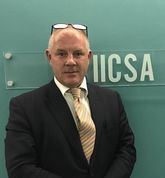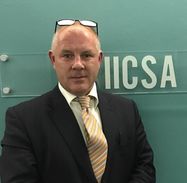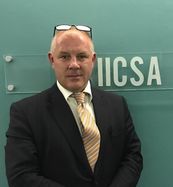
Howe+Co representing a large proportion of the victims and survivors who have been granted core participant status before the Independent Inquiry into child Sexual Abuse (IICSA), including approximately 25% of the core participants in the Roman Catholic church Investigation.
There have been grave concerns regarding child abuse in the Catholic Church in the UK and internationally for some years. The Catholic Church continues to operate and oversee the education of almost a million British children. This investigation is therefore very important for child safety in the UK. On 28 July the IICSA published a determination by the Chair which appears to effectively sideline a very large proportion of all of the core participants in this important investigation. Of the 54 Core Participants Howe+Co represent 13 of them,( twelve who alleged they were abused by members of the Comboni Religious Order). The remaining 40 core participants come from a number of different parts of the Catholic Church. A key case study selected by the Inquiry is the The English Benedictine Order, which is a monastery based Religious Order that is distinctly different from the wider catholic church in terms of management and child protection. A large number of the Core Participants in this important investigation are now effectively excluded or sidelined from this investigation because of the on going criminal trial (Ealing Abbey/ St Bendict’s School and potentially Worth Abbey). As such of the four Abbeys identified originally as case studies for this Investigation, 50% are now not going to be considered. The remaining Abbeys to be investigated are Ampleforth Abbey in York, and Downside Abbey in the West of England, both in relatively remote locations. This the Chair has indicated, will be the evidence representing the whole of the Catholic Church.s. These two remote and wholly unrepresentative Abbeys will be used by the Inquiry to make findings in regard of child safety in the entirety of the Catholic Church in England and Wales. This decision by the Inquiry jeopardises the integrity and reliability of the whole Roman Catholic Church Investigation. David Enright (had of Howe & Co’s Inquiry Team) said:
2 Comments

The Guardian has reported that children as young as 12 are being denied compensation by a government agency because they are considered to have “consented” to being sexually abused.
David Enright (Head of Howe & Co’s Inquiry team) said: “I have raised this shocking issue with the Independent Inquiry into child Sexual Abuse repeatedly. I did so at the IICSA in the Seminar hearing of the 21 February 2017. Since then I have repeatedly urged the IICSA to immediately recommend that the CICA scrap this appalling policy whereby they maintain that children can consent to sexual abuse. We have today written again toProfessor Alexis Jay OBE (Chair of the IICSA) calling on her to act on our repeated calls and immediately recommend to government that this atrocious policy is scrapped ” 
Howe & Co, are very pleased to announce that Professor Alexis Jay, Chair of the Independent Inquiry into Child Sexual Abuse, today granted three further applications for Core Participant status for clients of Howe & Co. David Enright (Partner and head of Howe & Co’s Inquiry team) said:
“Our team puts a great deal of work into assisting vulnerable victims and survivors to have a meaningful role in this important public Inquiry. I am very pleased that we continue to win recognition for our clients in the IICSA” Howe & Co are currently encouraging persons who were or who are affected by issues of on line grooming to come forward so that we can assist them in relation to the IICSA’s newly announced Internet Investigation. The dead line for core participant applications for this vitally important investigation is the 28 July. As such we would encourage any persons affected (directly or indirectly) by child abuse which was facilitated through the internet or otherwise to contact us as soon as possible.
On the 14 July 2017, the Sun Newspaper blasted (in typical Sun-style) the supply of legal aid for an alleged terrorist whilst, at the same time, criticising the failure to provide legal aid to the victims and family members of the Hyde Park bombing. As is often the case, the headlines of the Sun are directed towards cases where legal aid is provided to persons accused of criminal acts. This is, and remains, a fundamental failure to appreciate British values i.e. the fact that everyone is entitled to a fair trial. It is a sad indictment of our world that when legal aid was being taken away from the victims of serious criminal actions (and/or those who might have been otherwise injured), the same tabloids cheered from the sidelines.
Notoriously, it has only been when those same journalists and/or MPs have been before the criminal courts and acquitted has the realisation of unfairness dawned. In other words, it is only when they have been confronted with the fact that they aren’t going to recover any money has it really struck home to them that the situation is inequitable. It is equally so when tragedies such as Grenfell, the child abuse scandal or deliberate acts such as the Hyde Park and Birmingham pub bombings that the victims of these incidents come to the forefront of people’s minds. What the paper really needs to ask itself is: why should the families be expected to fund their claims in the first place? Why, as a society, are we no longer prepared to stand side-by-side with those victims and survivors and say you are entitled to be funded better than those who are accused of these crimes? Legal aid rates have not changed since the 1990s. As such, the notion of the specialist, legal aid lawyer has continued to gather apace. This is because new lawyers are no longer attracted to this area. More importantly, the means assessment threshold (Income and Capital allowance) has also not changed for many years. As such, at a base layer, many people working for minimum wage - and not even full time - are excluded from the provision of legal aid; or they are often expected to pay considerable sums towards it. If a person owns a property, they are almost certainly excluded from legal aid, as there is a cap of £8,000 on capital. This cap applies whether or not that person can liquidate that property (such as a family home) to pay for a lawyer or not. Of particular interest is that in Scotland and Northern Ireland, the governments can apply an increased rate so more people are eligible for legal aid. By contrast, in England, a very small number of people are eligible for legal aid. This is especially so in London, where the cost of living is far higher. As such, those excluded from legal aid are generally the victims; or those that are working simply because the Lord Chancellor has chosen to not to review the means assessment. We already know that the issues within Grenfell were issues which would have previously been raised by housing lawyers long before the tragedy. The new Lord Chancellor mistakenly thought that legal aid was available, which does suggest that legal aid should - and must - be revisited sooner rather than later. The current Inquires are largely because of the failures of the state to ensure that those affected had a proper opportunity to report concerns and to be taken seriously whether through a state-funded lawyer or not. It is high time that there was a state funded Inquiry into the failure of the state to stand shoulder-to-shoulder with those that they have hurt, both directly and indirectly and further failed by not providing legal aid. Authored by Adam Tear |
Categories
All
Archives
January 2023
|
